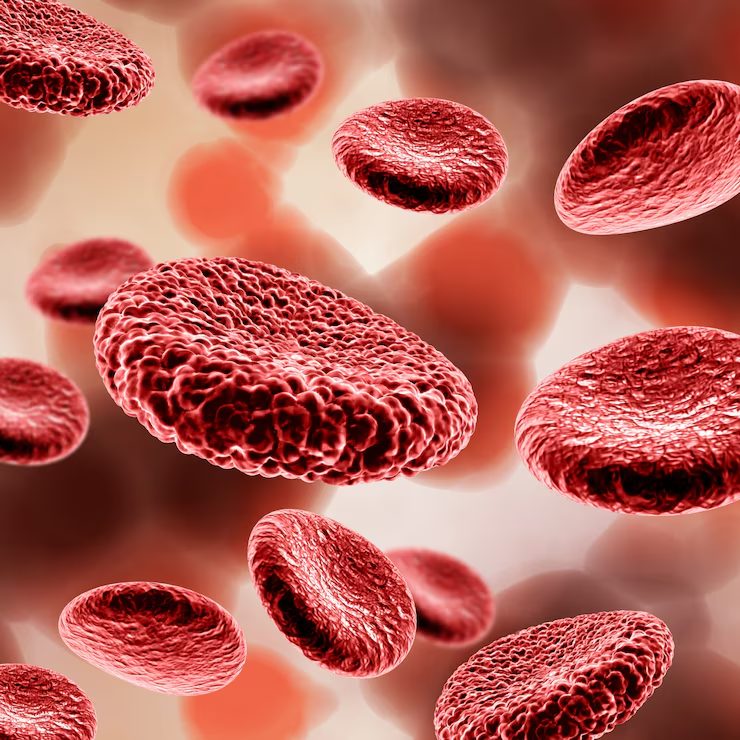Blood cancer is a serious, life-altering condition that affects thousands of people globally every year. Despite its prevalence, there are still many misconceptions about the disease, making it crucial to differentiate between myths and facts. This post aims to shed light on the different types of blood cancers, debunk common myths, and provide insights into treatment options available at the best cancer hospital in India.

What is Blood Cancer?
Blood cancer, or hematologic cancer, starts in the bone marrow, where blood is produced. It affects the production and function of blood cells, leading to conditions that can hinder the body’s ability to fight infections, regulate blood flow, or perform normal bodily functions. The three primary types of blood cancer are leukemia, lymphoma, and myeloma.
Each type presents distinct symptoms and treatment options. Let’s dive into each type to understand them better.
1. Leukemia: What You Need to Know?
Leukemia affects the bone marrow and blood, leading to the uncontrolled growth of abnormal white blood cells. There are four main types: acute lymphocytic leukemia (ALL), acute myeloid leukemia (AML), chronic lymphocytic leukemia (CLL), and chronic myeloid leukemia (CML). Acute forms progress quickly and require immediate treatment, while chronic leukemias may develop more slowly.
Common Myths vs. Facts
- Myth: Only children are affected by leukemia.
- Fact: While some forms, such as acute lymphocytic leukemia, are more common in children, leukemia can affect adults as well.
- Myth: Leukemia is always fatal.
- Fact: With modern medical advances, many types of leukemia are treatable, especially when diagnosed early. The best cancer hospital in India offers cutting-edge treatments, including chemotherapy, targeted therapy, and bone marrow transplants, significantly improving survival rates.
2. Lymphoma: Decoding This Type of Blood Cancer
Lymphoma is a cancer of the lymphatic system, which is part of the body’s immune system. It affects the lymph nodes, spleen, thymus, and bone marrow. The two primary types of lymphoma are Hodgkin’s lymphoma and non-Hodgkin’s lymphoma. Both types can cause symptoms such as swollen lymph nodes, fever, and weight loss.
Common Myths vs. Facts
- Myth: All lymphomas are the same.
- Fact: Hodgkin’s lymphoma and non-Hodgkin’s lymphoma are two distinct diseases with different causes, treatment protocols, and survival rates.
- Myth: Lymphoma can only be treated with chemotherapy.
- Fact: Treatment options for lymphoma are varied and may include radiation therapy, immunotherapy, and stem cell transplants. At top hospitals like PSRI Hospital, personalized treatment plans are developed based on the patient’s specific condition and overall health.
3. Myeloma: Understanding Its Unique Nature
Myeloma, also known as multiple myeloma, is a cancer of plasma cells, a type of white blood cell responsible for producing antibodies. Myeloma disrupts normal blood cell production, leading to weakened immune function, bone damage, and anemia. It’s a relatively rare type of blood cancer, often found in older adults.
Common Myths vs. Facts
- Myth: Myeloma is a death sentence.
- Fact: While multiple myeloma is not curable, advancements in treatments, including immunotherapy and stem cell transplants, can help manage the disease effectively, allowing patients to live longer, healthier lives.
- Myth: Myeloma only affects bones.
- Fact: While bone pain is a common symptom, myeloma also affects the kidneys and blood, leading to more widespread health issues. Regular monitoring and specialized treatments are crucial for managing these effects.
The Importance of Early Diagnosis and Treatment
Blood cancer often presents with symptoms like fatigue, frequent infections, unexplained weight loss, and bruising, which can easily be mistaken for other conditions. This makes early diagnosis critical. Advanced diagnostic techniques, such as bone marrow biopsies, blood tests, and imaging, are used to detect blood cancers at their earliest stages.
At the best cancer hospital in India, comprehensive cancer care involves not only early diagnosis but also access to the latest treatments, including chemotherapy, radiation therapy, targeted therapy, and immunotherapy. Hospitals like PSRI Hospital focus on patient-centric care, providing both physical and emotional support throughout the treatment journey.
Why Choosing the Right Hospital Matters?
When it comes to blood cancer treatment, selecting the right hospital is key to ensuring the best possible outcome. The best cancer hospital in India offers several advantages:
- Advanced Technology: State-of-the-art diagnostic and treatment tools, such as robotic surgery, personalized medicine, and stem cell transplants.
- Expert Oncologists: A team of specialized doctors who are leaders in cancer treatment, ensuring that every patient receives the most appropriate and effective care.
- Comprehensive Care: From early diagnosis to rehabilitation, hospitals like PSRI Hospital provide a wide range of services, including nutrition counseling, physical therapy, and mental health support.
Conclusion
While blood cancer can be daunting, awareness and education are powerful tools in overcoming the fears and misconceptions surrounding it. Early diagnosis and advancements in medical treatments have opened up new avenues for fighting this disease, making it possible for patients to lead longer and healthier lives. By seeking out reliable information, dispelling myths, and trusting in the expertise of specialized healthcare providers, we can transform the narrative from one of fear to one of hope and resilience.
Understanding the types of blood cancers—leukemia, lymphoma, and myeloma—and recognizing the importance of personalized care is crucial for patients and their families. With the rapid evolution of cancer treatments, individuals today have access to a wide range of options, from chemotherapy to groundbreaking immunotherapies. Support systems that focus on both physical and emotional well-being are equally important, empowering patients to navigate their health journey with confidence.
At PSRI Hospital, compassionate care is at the heart of every treatment plan. By offering cutting-edge technology and a patient-first approach, they stand as a beacon of hope for anyone facing blood cancer. Whether you’re looking for preventive screenings, advanced therapies, or support services, PSRI is dedicated to guiding you every step of the way, ensuring that you are never alone in this battle. Take action now, learn more about the latest treatment options, and make informed decisions that can change the course of your future. The journey toward better health begins with a single step—reach out today!
This proactive approach and access to world-class healthcare can make all the difference in achieving positive outcomes, spreading hope not just for survival, but for thriving in life beyond blood cancer.
One94Store Artificial Leaf Curtain Led String Light,200 LEDs,8 Modes,Remote Control,Adjustable Brightness,Ac Plug - for Home (Warm White,3X2 Meter) - Copper
₹329.00 (as of 22 October, 2024 18:22 GMT +05:30 - More infoProduct prices and availability are accurate as of the date/time indicated and are subject to change. Any price and availability information displayed on [relevant Amazon Site(s), as applicable] at the time of purchase will apply to the purchase of this product.)Rylan Plastic Fridge Storage Boxes (Pack Of 6), Fridge Organizer With Removable Drain Plate Tray Keeps Fruits, Vegetables, Meat, Fish Fresh Longer (1500 Ml),White
₹333.00 (as of 22 October, 2024 18:23 GMT +05:30 - More infoProduct prices and availability are accurate as of the date/time indicated and are subject to change. Any price and availability information displayed on [relevant Amazon Site(s), as applicable] at the time of purchase will apply to the purchase of this product.)Status Contract Anti Slip Front Door Mat|(38x58cm) Living Room Rug for Entrance Door|Polypropylene Floor Mats for Home|Essential Small Rug for Office, Bedroom & Kitchen| (Blue), Rectangular
₹79.00 (as of 22 October, 2024 18:22 GMT +05:30 - More infoProduct prices and availability are accurate as of the date/time indicated and are subject to change. Any price and availability information displayed on [relevant Amazon Site(s), as applicable] at the time of purchase will apply to the purchase of this product.)Desidiya 12 Stars 138 Led Curtain String Lights Window Curtain Lights with 8 Flashing Modes Decoration for Christmas, Wedding, Party, Home, Patio Lawn Warm White (138 Led-Star, Copper, Pack of 1)
₹289.00 (as of 22 October, 2024 18:22 GMT +05:30 - More infoProduct prices and availability are accurate as of the date/time indicated and are subject to change. Any price and availability information displayed on [relevant Amazon Site(s), as applicable] at the time of purchase will apply to the purchase of this product.)SWAPKART Double Layer Soap Dispenser for Bathroom Accessories Dishwasher Liquid Holder Liquid Dispenser Pump with Sponge Holder Kitchen Sink Accessories Items(Multi Colour)
₹129.00 (as of 22 October, 2024 18:23 GMT +05:30 - More infoProduct prices and availability are accurate as of the date/time indicated and are subject to change. Any price and availability information displayed on [relevant Amazon Site(s), as applicable] at the time of purchase will apply to the purchase of this product.)Discover more from The General Post
Subscribe to get the latest posts sent to your email.




